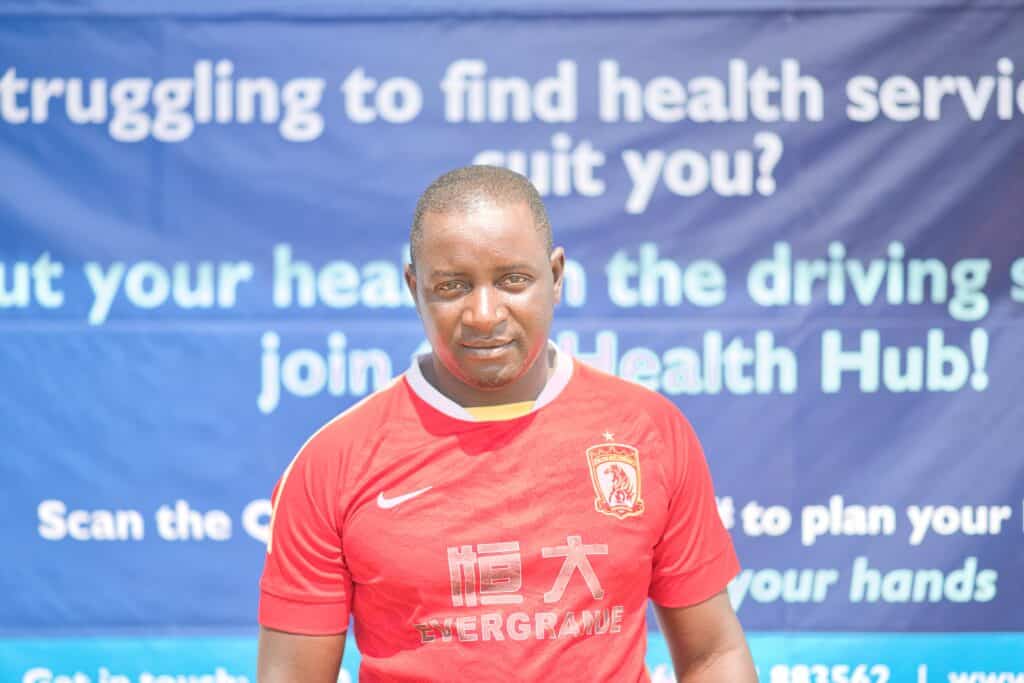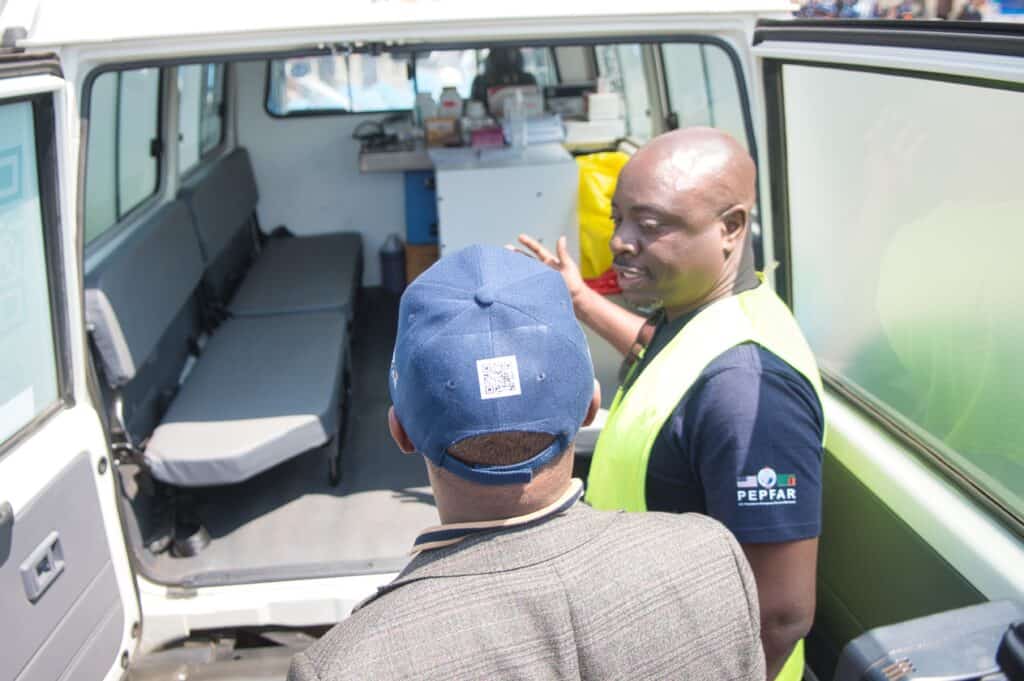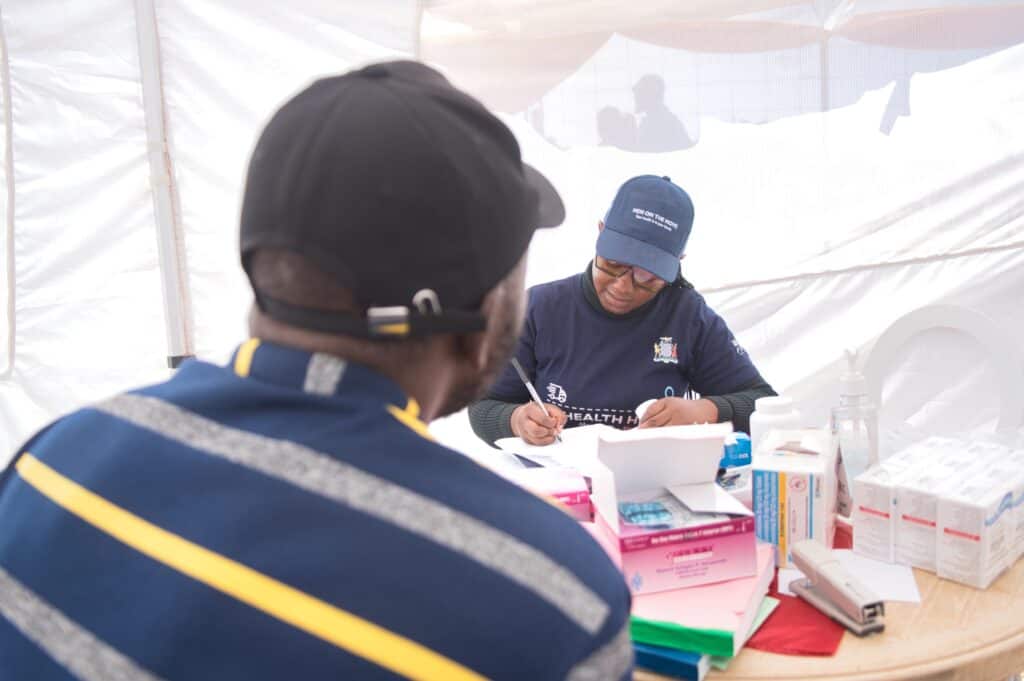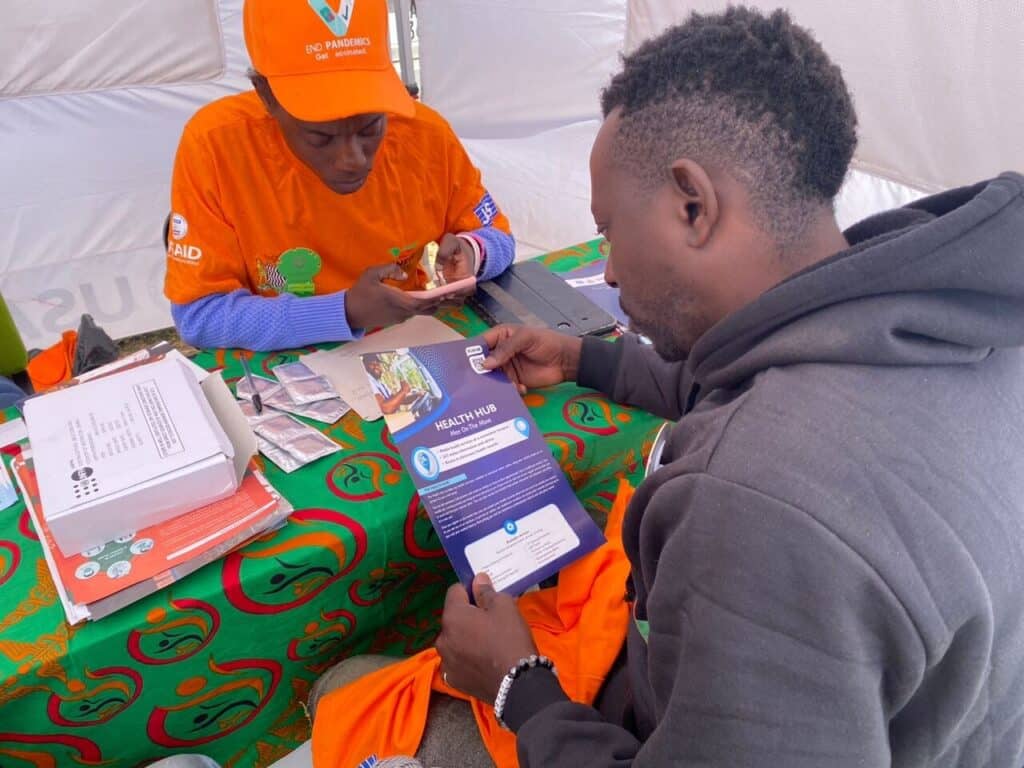This website uses cookies so that we can provide you with the best user experience possible. Cookie information is stored in your browser and performs functions such as recognizing you when you return to our website and helping our team to understand which sections of the website you find most interesting and useful.
Edmore is a truck driver in Zambia who has been doing his job for years. He can spend weeks on the road and faces challenges accessing health care. “I wouldn’t normally go to the doctor. It’s not convenient.”
JSI is increasing access to health care for truck drivers in Zambia, like Edmore, by providing digital services to migrant populations. On August 17, the JSI-managed USAID DISCOVER-Health Project launched the Health Hub: Men on the Move. Hundreds of people gathered at the Kasumbalesa Border Post, as Copperbelt Province Deputy Permanent Secretary Mr. Daniel Kamenga opened the event.
The Health Hub is a result of the project’s collaboration with the Ministry of Health to find innovative ways to provide health services to underserved populations, including long-distance truck drivers. Project Director Dr. Mutinta Nyumbu explains that, “Truck drivers are away from home for long periods of time and work irregular hours. They are vulnerable to sexually transmitted infections, including HIV, and malaria and diarrheal diseases because of poor sanitary conditions. They can’t commit to appointment times or wait for hours at a busy clinic. Their health needs are not being met, so USAID DISCOVER-Health has created the Health Hub to provide these men with the crucial health services they deserve, and it’s so exciting to be embracing technology to do it.”
Focusing efforts on the congested Lusaka-Kasumbalesa route, the project hopes to overcome some of truck drivers’ barriers to care through digital health services. Following an easy registration process, people can access information and services—ranging from routine health screenings to COVID-19 vaccination to HIV prevention and treatment—on the Health Hub at their convenience.
Drivers like Edmore can now benefit from the Hub when they’re on the road. In Edmore’s words, “The Health Hub will help me so much. I can now access health services, see a professional, and be assured I’m getting the right advice.”
The Health Hub lets providers view clients’ health records online, allowing for continued care while the drivers are on the move. It also lets clients book appointments and track their health records. The online platform is supported by health facilities that provide in-person appointments and medication, and mobile health vans that offer outreach service delivery in communities. Geo-location software in the Health Hub links clients to the nearest facility or mobile health van, whichever they prefer.
USAID DISCOVER-Health complements the Health Hub’s virtual space with in-person interactions founded in social and behavior change. The team has been talking with and learning from community leaders to develop materials such as fact sheets to spread the word about the Health Hub. The project is also running a media campaign via TV, radio, and print that is supported by community health workers and peer mentors.
While August 17 was the official start of the Health Hub, the platform went live at the end of May to allow the project to test the technology and troubleshoot problems. In just two months, 1,211 truck drivers accessed the service; 11 started HIV treatment; and 1,047 started HIV-prevention medication.
With its live music, dancing, and celebrating, the official opening of the Health Hub: Men on the Move is putting clients in the driver’s seat and on the road to life-sustaining health services.





